Go Lean Commentary
A New World Order is good!
A New World Order is bad!
Now with the global accountability, Bad Actors cannot hide; they are called into account quickly – they are named, blamed and shamed; (think of the 2014 Boko Haram kidnapping of young girls in Africa).
That is good!
But with global interactions, any one contagion in one part of the world can easily and quickly affect the rest of the world. This is true of viruses; epidemics become pandemics – think of the currency of COVID-19. In addition to infectious diseases, the same consequence can happen with economic contagions.
… spread of an economic crisis from one market or region to another and can occur at both a domestic or international level. Contagion can occur because many of the same goods and services, especially labor and capital goods, can be used across many different markets and because virtually all markets are connected through monetary and financial systems. – Investopedia
This was the reality with the 2008 Great Recession crisis, and the Sovereign Debt crisis a decade ago …
… and it may be happening again now with a “Too Big To Fail” crisis in China. See the full news story & VIDEO here:
News Article – Title: China: What is Evergrande and is it too big to fail?
Sub-title: Global financial markets have been on high alert as cash-strapped Chinese property giant Evergrande faces several key tests in the coming days.The world’s most indebted real estate developer is set to hit a series of deadlines for bond interest payments, totalling tens of millions of dollars.
As the company struggles to meet those payments, it has started to repay some investors in its wealth management business with property.
What does Evergrande do?
Businessman Hui Ka Yan founded Evergrande, formerly known as the Hengda Group, in 1996 in Guangzhou, southern China.
Evergrande Real Estate currently owns more than 1,300 projects in more than 280 cities across China.
The broader Evergrande Group now encompasses far more than just real estate development.
Its businesses range from wealth management, making electric cars and food and drink manufacturing. It even owns one of country’s biggest football teams – Guangzhou FC.
Mr Hui was once Asia’s richest person and, despite seeing his wealth plummet in recent months, has a personal fortune of more than $10bn (£7.3bn), according to Forbes.
Why is Evergrande in trouble?
Evergrande expanded aggressively to become one of China’s biggest companies by borrowing more than $300bn.
Last year, Beijing brought in new rules to control the amount owed by big real estate developers.
The new measures led Evergrande to offer its properties at major discounts to ensure money was coming in to keep the business afloat.
Now, it is struggling to meet the interest payments on its debts.
This uncertainty has seen Evergrande’s share price tumble by around 80% this year. Its bonds have also been downgraded by global credit ratings agencies.
Why would it matter if Evergrande collapses?
There are several reasons why Evergrande’s problems are serious.
Firstly, many people bought property from Evergrande even before building work began. They have paid deposits and could potentially lose that money if it goes bust.
There are also the companies that do business with Evergrande. Firms including construction and design firms and materials suppliers are at risk of incurring major losses, which could force them into bankruptcy.
The third is the potential impact on China’s financial system.
“The financial fallout would be far reaching. Evergrande reportedly owes money to around 171 domestic banks and 121 other financial firms,” the Economist Intelligence Unit’s (EIU) Mattie Bekink told the BBC.
If Evergrande defaults, banks and other lenders may be forced to lend less.
This could lead to what is known as a credit crunch, when companies struggle to borrow money at affordable rates.
A credit crunch would be very bad news for the world’s second largest economy, because companies that can’t borrow find it difficult to grow, and in some cases are unable to continue operating.
This may also unnerve foreign investors, who could see China as a less attractive place to put their money.
Is Evergrande ‘too big to fail’?
The very serious potential fallout of such a heavily-indebted company collapsing has led some analysts to suggest that Beijing may step in to rescue it.
The EIU’s Mattie Bekink thinks so: “Rather than risk disrupting supply chains and enraging homeowners, we think the government will probably find a way to ensure Evergrande’s core business survives.”
Others though are not sure.
In a post on China’s chat app and social media platform WeChat, the influential editor-in-chief of state-backed Global Times newspaper Hu Xijin said Evergrande should not rely on a government bailout and instead needs to save itself.
This also chimes with Beijing’s aim to rein in corporate debt, which means that such a high profile bailout could be seen as setting a bad example.
Reporting by Peter Hoskins and Katie Silver
Source: BBC Business News – Retrieved September 29, 2021 from: https://www.bbc.com/news/business-58579833
Related VIDEO:
Posted September 28, 2021 – What China’s Evergrande crisis means for the world.
This key excerpt from this foregoing news article laments a credit crunch:
This could lead to what is known as a credit crunch, when companies struggle to borrow money at affordable rates.
A credit crunch would be very bad news for the world’s second largest economy, because companies that can’t borrow find it difficult to grow, and in some cases are unable to continue operating.
We saw the world’s largest economy, the USA, deal with “A Too Big to Fail” crisis. We also saw the European Union deal with their crisis. Now we get to see China – the #2 largest economy – deal with this issue.
What lessons do we learn?
How can we apply those lessons in the Caribbean?
As related previously, China subscribes to a more technocratic approach, rather than the Western model of yielding to the Crony-Capitalism influences for bail-outs; this was the conclusion of the foregoing news article:
… Beijing’s aim to rein in corporate debt, which means that such a high profile bailout could be seen as setting a bad example.
Consider our insights here; these 6 points extracted from previous blog-commentaries on Too Big To Fail contagions and a bad Debt culture:
1. Lessons Learned from 2008: Too Big to Fail –vs- Too Small to Thrive – September 18, 2018
“Too Big to Fail” was a Big Deal. This is more than just an academic discussion …. In 2008 the biggest impact of the global financial contagions was the dilution of net worth for the citizens of the affected countries: US, Canada and Western Europe. These economies are the primary source of Caribbean tourists; since tourism is the primary economic driver, this was a real problem for the pocketbooks of every individual and institution in the region.
…
The 2008 Great Recession / Financial Crisis exposed the trappings of the interconnected global economy. If we, in the Caribbean, are going to “play in this sandbox” – transact in this marketplace – then we must be prepared and On Guard, for the risks, threats and dangers.2. Lessons Learned from 2008: Still Recovering – September 20, 2018
When policies are put in place that allow greedy people – bad actors – to continue unabated, bad things happen … to the bad actors and to society in general. This reality is something that stewards of every society must contend with. Every community is required to implement public safety provisions – at great expense. But the lesson is undisputed: whatever law enforcement costs, pales in comparison to lawlessness.
This actuality applies all the more so to economic crimes and misdeeds; this was definitely true with all the economic crimes leading up to the Great Recession of 2008 – lost of net worth estimated at $11 Trillion. And yet, the US is throwing out much of the wisdom gleaned after 2008. There is the trend now to undo a lot of the reforms that were implemented after the Financial Crisis – to de-fang the Dodd-Frank regulations. This is unwise! The regulations that were imposed are designed to mitigate the risk of subsequent economic meltdowns.
History does repeat itself. …
2008 was a giant mess for the US. We want to learn and apply lessons from their experiences. But truthfully, we have no power there. We have no vote and no voice to change them. We can only protect ourselves from their abusive activities; (the abuse to the American-self and the interconnected world). The bad trend of America stripping the new financial protections has begun – already after less than 10 years.
3. ‘Too Big To Fail’ – Caribbean Version – November 14, 2014
The Caribbean region has not been front-and-center to many financial crises in the past, compared to the 465 US bank failures between 2008 and 2012.[a] But over the past few decades, there have been some failures among local commercial banks and affiliated insurance companies where the institutions could not meet demands from depositors for withdrawal. Consider these examples from Jamaica and Trinidad …
With the advent of the CARICOM Single Market & Economy (CSME), a more integrated region is expected to lead to greater linkages among the member-states of this existing economic union.
4. Day of Reckoning for NINJA Loans – January 19, 2017
It is time for the Day of Reckoning for one of the players in the recent housing bubble and financial crisis, referred to as the Great Recession of 2008. Industry stakeholders had been “skimming of the public coffers for mortgage guarantees and giving unwise mortgages to people who had what was considered NINJA qualification:
- No Income
- No Job or Assets
Such activities in the retail mortgage industry, plus bad practices in the wholesale lending, credit ratings and mortgage-back securities industries had congealed to form a “perfect storm” for disaster in the financial markets (Wall Street, et al) in the US and around the world.
Many innocent people lost fortune and faith in the American eco-system. There had to be an accounting of the “sins and sinister plots”; there had to be a Day of Reckoning. That day came for one Michigan-based (Detroit area) company, United Shore Financial Services. See the full story here …
5. Lessons from Iceland – Model of Recovery – September 23, 2015
There are so many lessons the Caribbean region can learn from the island Republic of Iceland. …
During the bad days of the Great Recession – at the precipice of disaster – the country deviated from other troubled regions …
Iceland let its banks fail in 2008 because they proved too big to save.
How does it relate to the Caribbean? The Caribbean is at the precipice … now; many of the member-states are near Failed-State status, while others are still hoping to recover from the devastating Great Recession of 2008. Turn-around should not take this long – 7 years. Strategies, tactics and implementations of best-practices to effect a turn-around must be pursued now.
Iceland has now recovered, and complaining about a 2% unemployment rate. What did they do that was so radically different than other locations? For one, they changed course regarding economics, security and governing policies. An ultra-capitalist movement had taken hold of the country and business communities; they pursued an aggressive “boom-or-bust” strategy, that ultimately “busted”, rather than continue on that road, the country – all aspects of society – altered course and returned to a path of sound fundamentals.
They rebooted and turned-around! Iceland embraced all aspects of turn-around strategies, mandating bankruptcies and “wind-downs” so that the economy – and society in general – could start anew.
6. Beware of Vulture Capitalists – February 25, 2016
… just say “No” to debt!
Many bad things happen when people, institutions and countries depend on debt. A “slippery slope” can emerge … from dependence, to reliance, to requirement, to a “vital” status, to … debt slavery. Emancipation from debt slavery is not so easy, as many times its a voluntary slavery. The ransom to redeem from slavery is all about money, finance and/or economics. This is why the sage advice from a Subject Matter Expert in Economics is: The further one stays away from debt, the better!
It’s a lesson learned, as chronicled in the 2013 book Go Lean … Caribbean, from Detroit; not only does debt impact the past, but the future as well. Debt can be so bad that at times the providers … and collectors of debt may be derisively called “vultures” …
This dire disposition of debt is not exclusive nor limited to Detroit. This applies to many other communities, in North America, Europe (think Greece), Latin America and even in the Caribbean.
Some may conclude: “this Evergrande Debt Crisis is a Chinese problem for China to deal with alone”. Right?
Such people may think that this drama ”is none of our business”.
Alas, we have learned so much about economic contagions to know that this can affect us … quickly. Plus, in the last decades, China has emerged as a global giant in trade and also a regional player in the Caribbean for foreign investment and infrastructure-building. We are in too deep! See this portrayal in this excerpt from a previous blog-commentary:
China’s Caribbean Playbook: America’s Script – September 2, 2015
China has invested heavily in the Caribbean, as of recent; see [this] list here of selected announcements …
Just what is China’s motive, their end game?
Should we be leery or should we just embrace [the badly needed] help from whatever sources?
How much of this questioning is influenced by a pro-American yearning? Pro-Christian yearning? Fear of strangers? Racist under-valuing of non-White/European races?
There is the need for the Caribbean to take stock of its thoughts-feelings-actions and give all of these questions serious deliberation.
If this Golden Rule is true: “he who has the gold makes the rules”, then we will be held to account to stakeholders in China, as their many state-own companies are definitely “bringing gold” to the table. …
[China’s] This focus on trade is very familiar.
This is the same playbook of the United States of America in building the world’s largest Single Market economy. (Remember, with the Army Corp of Engineers, the US built the Panama Canal, but with more strings attached). China is simply following the same American script – minus the cronyism and militarism – of promoting trade of their products, services and capital.
Capital? Yes, many of the projects highlighted in the foregoing news articles are being financed by China’s state-owned banks and lending institutions. They are “putting their money, where their mouth is”.
The possibility of an economic contagion originating out of China should scare us.
(We are still dealing with the Coronavirus COVID-19 pandemic, which originated out of China).
So let’s pay more than the usual attention … about the news and developments of this Evergrande Debt crisis. This is our business too. We must look, listen, learn, lend-a-hand and lead our own stewardship for economic contagions in our Caribbean region.
Everyone in the Caribbean are urged to lean-in to this consideration to glean the insights, strategies, tactics and implementations of China in managing this Evergrande crisis.
We are not being asked to change China; no, we are being asked to change “us”. It is heavy-lifting to remediate and mitigate threats and protect our society; but this is what it takes to lead: to reform and transform our society. Yes, we can make our regional homeland a better place to live, work and play.
Let’s get started; let’s stay alert; let’s protect our homeland … 🙂
About the Book
The book Go Lean…Caribbean serves as a roadmap for the introduction and implementation of the technocratic Caribbean Union Trade Federation (CU) and the accompanying Caribbean Central Bank (CCB), for the elevation of Caribbean society – for all member-states. This CU/Go Lean roadmap has these 3 prime directives:
- Optimization of the economic engines in order to grow the regional economy to $800 Billion & create 2.2 million new jobs.
- Establishment of a security apparatus to ensure public safety and protect the resultant economic engines.
- Improve Caribbean governance to support these engines, including a separation-of-powers between the member-states and CU federal agencies.
The Go Lean book provides 370-pages of turn-by-turn instructions on “how” to adopt new community ethos, plus the strategies, tactics, implementations and advocacies to execute so as to reboot, reform and transform the societal engines of Caribbean society.
Download the free e-Book of Go Lean … Caribbean – now!
Who We Are
The movement behind the Go Lean book – a non-partisan, apolitical, religiously-neutral Community Development Foundation chartered for the purpose of empowering and re-booting economic engines – stresses that reforming and transforming the Caribbean societal engines must be a regional pursuit. This was an early motivation for the roadmap, as pronounced in the opening Declaration of Interdependence (Pages 12):
x. Whereas we are surrounded and allied to nations of larger proportions in land mass, populations, and treasuries, elements in their societies may have ill-intent in their pursuits, at the expense of the safety and security of our citizens. We must therefore appoint “new guards” to ensure our public safety and threats against our society, both domestic and foreign. The Federation must employ the latest advances and best practices … to assuage continuous threats against public safety.
xi. Whereas all men are entitled to the benefits of good governance in a free society, “new guards” must be enacted to dissuade the emergence of incompetence, corruption, nepotism and cronyism at the peril of the people’s best interest. The Federation must guarantee the executions of a social contract between government and the governed.
xvi. Whereas security of our homeland is inextricably linked to prosperity of the homeland, the economic and security interest of the region needs to be aligned under the same governance. Since economic crimes … can imperil the functioning of the wheels of commerce for all the citizenry, the accedence of this Federation must equip the security apparatus with the tools and techniques for predictive and proactive interdictions.
xiv. Whereas a free market economy can be induced and spurred for continuous progress, the Federation must install the controls to better manage aspects of the economy: jobs, inflation, savings rate, investments and other economic principles. Thereby attracting direct foreign investment because of the stability and vibrancy of our economy.
Sign the petition to lean-in for this roadmap for the Caribbean Union Trade Federation.
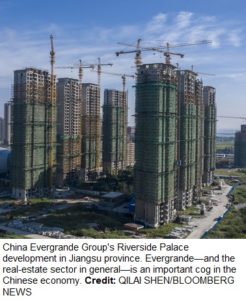
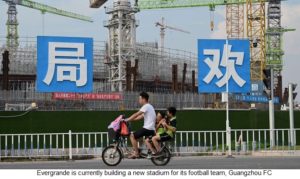
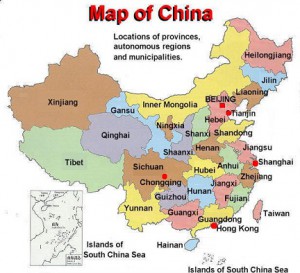
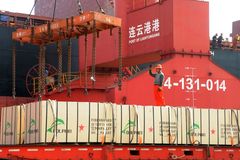
 There is still flooding in certain parts of the US.
There is still flooding in certain parts of the US.

 This is the lessons we glean from the new book by Heather McGhee, that the Zero Sum experience is expensive when Non-Zero Sum is so much cheaper, easier and … just.
This is the lessons we glean from the new book by Heather McGhee, that the Zero Sum experience is expensive when Non-Zero Sum is so much cheaper, easier and … just.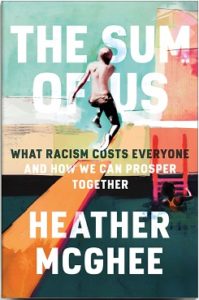 Hinton Rowan Helper was an unreserved bigot from North Carolina who wrote hateful, racist tracts during Reconstruction. He was also, in the years leading up to the Civil War, a determined abolitionist.
Hinton Rowan Helper was an unreserved bigot from North Carolina who wrote hateful, racist tracts during Reconstruction. He was also, in the years leading up to the Civil War, a determined abolitionist. “Google Doodle” for February 12, 2021
“Google Doodle” for February 12, 2021

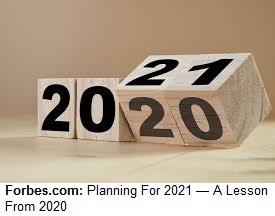
 The same as vision can be corrected with glasses and lenses, community vision or planning can also be perfected with reboots and turn-around activities. Our current vision is bad, we need correction. We cannot see (nor seem to care about) all of our citizens that are fleeing the homeland and looking for refuge elsewhere. Yes, we need to correct our vision; we need to get back to 20/20.
The same as vision can be corrected with glasses and lenses, community vision or planning can also be perfected with reboots and turn-around activities. Our current vision is bad, we need correction. We cannot see (nor seem to care about) all of our citizens that are fleeing the homeland and looking for refuge elsewhere. Yes, we need to correct our vision; we need to get back to 20/20.







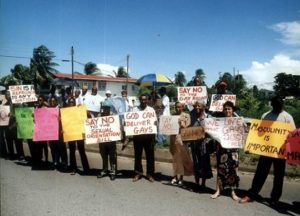

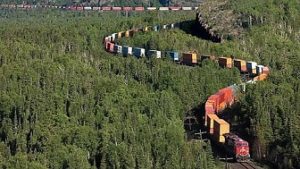 The Long Train of Abuses is predictable, but not good.
The Long Train of Abuses is predictable, but not good.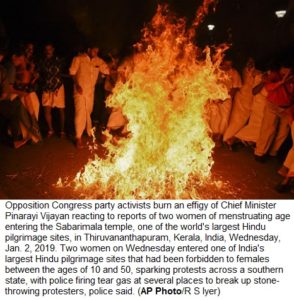
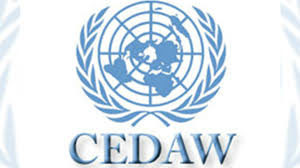


 Just 10 years ago, recreational cannabis was illegal in all 50 states, but that started to change in 2012, when Colorado and Washington became the first states to legalize marijuana for recreational use. At the time, California, which has one of the biggest and oldest marijuana markets in the country, allowed only medicinal use of cannabis.
Just 10 years ago, recreational cannabis was illegal in all 50 states, but that started to change in 2012, when Colorado and Washington became the first states to legalize marijuana for recreational use. At the time, California, which has one of the biggest and oldest marijuana markets in the country, allowed only medicinal use of cannabis.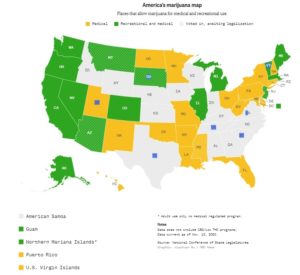
 Caribbean stewards – government and community leaders alike – have just a little time to get ready for more societal Chaos brought on by recreational marijuana; (and possibly other recreational drugs – see Appendix VIDEO).
Caribbean stewards – government and community leaders alike – have just a little time to get ready for more societal Chaos brought on by recreational marijuana; (and possibly other recreational drugs – see Appendix VIDEO).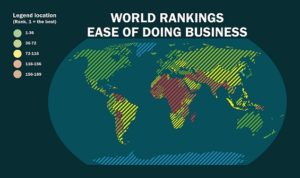 Peace and Prosperity …
Peace and Prosperity … We do not want Toxic Environments … anymore.
We do not want Toxic Environments … anymore. Doing Business 2020, a World Bank Group flagship publication, is the 17th in a series of annual studies measuring the regulations that enhance business activity and those that constrain it. Doing Business presents quantitative indicators on business regulations and the protection of property rights that can be compared across 190 economies—from Afghanistan to Zimbabwe—and over time.
Doing Business 2020, a World Bank Group flagship publication, is the 17th in a series of annual studies measuring the regulations that enhance business activity and those that constrain it. Doing Business presents quantitative indicators on business regulations and the protection of property rights that can be compared across 190 economies—from Afghanistan to Zimbabwe—and over time.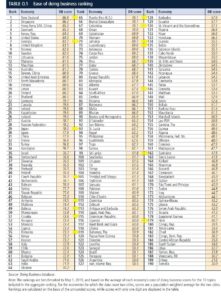
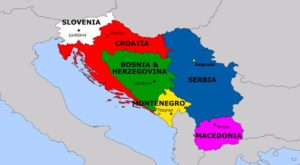 Welcome to Yugoslavia … one of the most classic Toxic Environments in the history of civilization.
Welcome to Yugoslavia … one of the most classic Toxic Environments in the history of civilization.
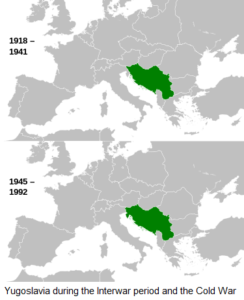 Yugoslavia
Yugoslavia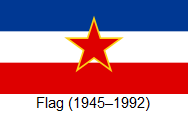 The six constituent republics that made up the
The six constituent republics that made up the  Multilateral military alliances abounded in that day among the Great Powers: Austria-Hungary with Germany (Triple Alliance of 1882) and Serbia with Russia and France (Triple Entente of 1907) and Britain. When war ensued later in August 1914, these were the sides. Many other military treaties were triggered thereby engaging empires/countries like Ottoman-Turks, Portugal, Japan and Italy, (The United States joined in 1917 allied with Britain). The resulting conflict was dubbed the Great War until subsequently rebranded World War I.
Multilateral military alliances abounded in that day among the Great Powers: Austria-Hungary with Germany (Triple Alliance of 1882) and Serbia with Russia and France (Triple Entente of 1907) and Britain. When war ensued later in August 1914, these were the sides. Many other military treaties were triggered thereby engaging empires/countries like Ottoman-Turks, Portugal, Japan and Italy, (The United States joined in 1917 allied with Britain). The resulting conflict was dubbed the Great War until subsequently rebranded World War I.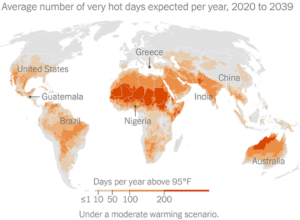 This is not true for Climate Change. Some communities are on the frontlines; some communities take all the beatings, while some other communities are unscathed.
This is not true for Climate Change. Some communities are on the frontlines; some communities take all the beatings, while some other communities are unscathed. … Mr. Hotak was 16 when he left his home in the Sholgara district of Afghanistan, the only one among his 11 brothers and sisters to do so. After one failed attempt to enter Europe and two years in a refugee camp, he was granted asylum in Greece. That’s when he arrived on the rooftop refuge with a friend, in the crowded warrens of Kolonos, a working class Athens neighborhood where many migrants have settled.
… Mr. Hotak was 16 when he left his home in the Sholgara district of Afghanistan, the only one among his 11 brothers and sisters to do so. After one failed attempt to enter Europe and two years in a refugee camp, he was granted asylum in Greece. That’s when he arrived on the rooftop refuge with a friend, in the crowded warrens of Kolonos, a working class Athens neighborhood where many migrants have settled.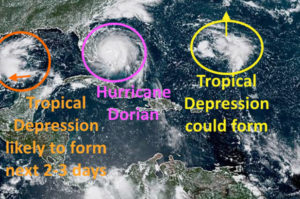 Hurricanes are worse; more frequent and more powerful. In fact for 2020, the meteorological officials have ran out of names to assign for this year’s Atlantic Hurricane season. They are now assigning the Greek alphabet as hurricane names; think Alpha, Beta, Gamma, Delta, Epsilon, etc.. Here is the actuality of the Alpha Storm here:
Hurricanes are worse; more frequent and more powerful. In fact for 2020, the meteorological officials have ran out of names to assign for this year’s Atlantic Hurricane season. They are now assigning the Greek alphabet as hurricane names; think Alpha, Beta, Gamma, Delta, Epsilon, etc.. Here is the actuality of the Alpha Storm here: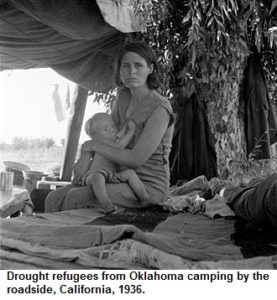 Well, the opposite is occurring; there are shortages – like precipitation, cool breezes, shady trees – and dire consequences (
Well, the opposite is occurring; there are shortages – like precipitation, cool breezes, shady trees – and dire consequences (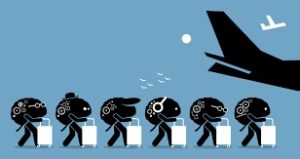 So first there was the brain drain (
So first there was the brain drain ( Our choices are that simple: prepare for Climate Change or watch our people migrate away from the homeland to foreign shores where the dire effects are lessened. While all humans are created equal, all people do not get equal treatment from … Mother Nature. Some people get more hot and wet than other people, yet they may not be able to afford the physical relief.
Our choices are that simple: prepare for Climate Change or watch our people migrate away from the homeland to foreign shores where the dire effects are lessened. While all humans are created equal, all people do not get equal treatment from … Mother Nature. Some people get more hot and wet than other people, yet they may not be able to afford the physical relief.